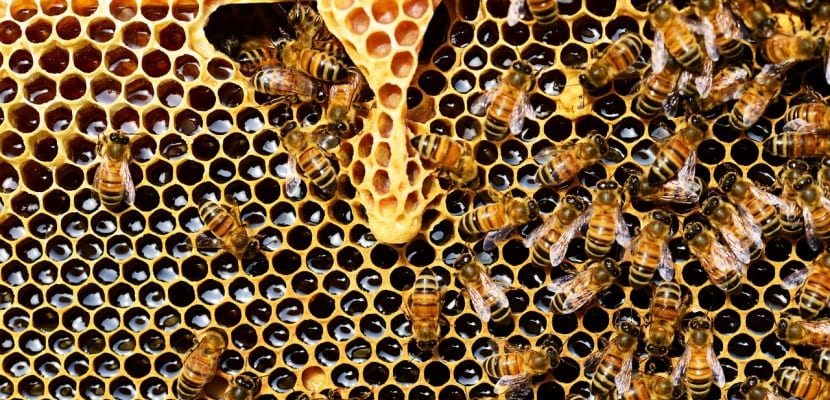
Many people fear going to the field, or the street and that a happy bee appears in the middle of our food and is tempted to sting us. Some others are allergic to their bites that is why they tend to be much more cautious in their presence.
Humans have always had a very important relationship with bees, not only because of the role of the insect that it plays in nature, but also because of the use of its products, such as It is royal jelly, honey, propolis and apitoxin, which is the substance used in apitherapy.
Apitherapy is an alternative treatment that has been practiced since ancient times, in the times of Egyptian Empire, in Ancient Greece and China. This therapy with bees is very beneficial for our health, in fact, it can favor the prevention of certain diseases.
If you want to know more about this therapy, do not stop reading, we will tell you and explain everything below.
What does bee poisons do?
Bees are not aggressive insectsAlthough if they are frightened and in danger, they do have the sting to defend themselves from potential aggression. This stinger produces a painful prick, and when it comes to sting us, the bee can be an unpleasant experience for anyone.
In that puncture that the person suffers the poison called apitoxin is injected and within this poison are also composed of other important substances for the human body:
- Peptides
- Lipids
- Gucids.
- Hyaluronidase.
- apamin.
- Amino Acids.
- Melittin.
- And another series of proteins.
The sting of a bee on a small animal can be fatal, however, in people unless it is allergic and affects it more than it should.
When the dose increases, this poison can have serious consequences, because at a high dose, it could cause more damage to the body. Between 100, 200 and 500 bees could cause deathThat is why we do not have to worry if one itches under normal conditions.
The amount of venom that each bee has is variable, as well as the proportion of the components, there are specimens that can have an average of 300 ug of apitoxin. Bee venom is used medicinally in apitherapy sessions.
How can we use bee venom?
As we said, the effect of apitoxin on humans has been used since ancient times, especially when there was a chronic pain picture. Proponents of bee therapy state that thanks to this poison, Charlemagne was cured of gout.
Maybe you are interested: Avoid uric acid, here are the forbidden foods
Now for the medicinal use of this poison, beekeepers obtain it with a device that emits an electric shock. The bees that are stimulated sting on a glass where they deposit the poison. Then once dry, it turns into powder and can be used.
This can be administered in different ways: through acupuncture, the venom can be injected, it can be applied naturally, that is, leaving the bee to sting on the skin. Apitherapists always prefer to use the latter, because this direct sting is more effective.
We can also have get this substance in creams and ointments, which helps to soothe pain, take care of the skin, etc. Although we have to say that effectiveness has always been put in between.
Benefits of apitherapy
Apitherapy has been used as a coadjuvant against different symptoms, pathologies and muscular pains. It is believed that it favors the improvement of psoriasis, migraines, lumbagos and autoimmune disorders.
It can also help us to have better mental health, its application helps us reduce stress and anxiety. In addition, we can highlight other proven uses:
- It has properties antibacterial and antifungal.
- It is anti-inflammatory and analgesic.
- Improves our metabolism and toxin elimination
- Helps people with hypertension due to its effect anticoagulant.
For now, the studies based on this very different therapy are quite small, not much research has been done and some benefits are questioned, that is why everything we tell we have to take as information and not as the absolute truth.
Helps in arthritis
Bee venom injected into rabbits influences the synthesis of corticosteroids, It is for this reason that bee venom helps to improve these arthritis problems in both animals and humans. Glucocorticoid hormones help regulate inflammation, apitoxin proved to be effective in slowing the progression of arthritis.
The venom also mitigates the symptoms of rheumatoid arthritis in humans, this bee venom can be good for treating joint inflammation, tenderness, and stiffness.
Psoriasis
On the other hand, in another study weekly injections were made to people with problems of psoriasis, and after 12 weeks, these showed a significant reduction in psoriasis plaques and inflammatory blood marker levels.
Pain treatment
In this sense, it has been verified that it is good for treating pain. Using this poison is beneficial to treat pain. Therefore, performing acupuncture with bee venom is very beneficial for the body.
When can we not carry out apitherapy?
Apitherapy is contraindicated in pregnant women and when the person suffers from some diseases, such as the ones we discuss below:
- Diabetes.
- Cancer.
- Tuberculosis.
- Neoplasms.
- Hepatitis.
- Myocarditis, angina pectoris, pericarditis, atherosclesosis and various heart diseases.
- Glaucoma.
- Hypertrophy of the prostate.
- Gastric and duodenal ulcer with a tendency to hemorrhage.
If we suffer from these ailments, it is better not to carry out this treatment procedure, no matter how beneficial it may be, since the contraindications outweigh the benefits. Would you dare to try this novel treatment? As we have explained, it is not necessary for the bees to sting you directly, although the proponents of this treatment prefer that it be used in the most natural way.
Maybe you are interested: Benefits and contraindications of royal jelly
Discover: Honey for the grains
Keep reading: Honey soap, properties and benefits


